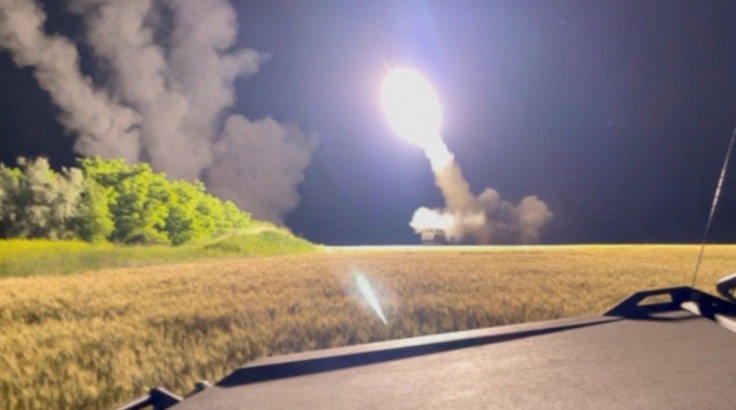Russia Accidentally Blows Up Own Supply Train, Soldiers 'Scattered In Panic'
KEY POINTS
- An explosion occurred at the Russian-controlled Kalanchak railway station in Ukraine's Kherson region Sunday
- It happened as train cars carrying supplies were being unloaded under the cover of a smoke screen
- The explosion may have been caused by mishandling of ammunition or an accidental fire
An accidental fire may have caused a train to blow up at a Russian railway station in Ukraine's mostly-occupied Kherson region over the weekend, according to Ukrainian intelligence.
Russian forces set up a smoke screen at the Kalanchak railway station Sunday to mask the unloading of train cars carrying military equipment and ammunition, the Ukrainian Ministry of Defence's Main Directorate of Intelligence (GUR) said in a statement Tuesday.
The screen was also deployed supposedly to protect the train cars against strikes from U.S.-supplied M142 High Mobility Artillery Rocket Systems, also known as HIMARS.
An explosion occurred in the work area at around 11:20 a.m. local time that day, and the rail convoy immediately began to move in the direction of the annexed region of Crimea, according to the GUR.
"The [Russian] personnel scattered in panic," the intelligence agency said.
The GUR said it was impossible to determine the source of the explosion due to the dense smoke screen, but it could have been caused by the "careless handling of ammunition during unloading or a fire that arose through to inept use of pyrotechnics during the creation of a smoke screen."
The first batch of HIMARS arrived in Ukraine in late June. The U.S. has committed 16 of the artillery systems to the country so far.
Their use in Russia's ongoing invasion is having a "significant impact on front line operations," according to the Department of Defense.
A HIMARS strike destroyed a train carrying Russian troops, military equipment and ammunition in Kherson's Brylivka station Saturday night, killing 80 people, according to Ukrainian officials.
Another strike on the southern Ukrainian town of Tavriis'k killed Major General Artem Nasbulin, the chief of staff of Russia's 22nd Army Corps.
HIMARS' effectiveness at damaging Russian military positions and carrying out successful attacks on targets far behind the frontlines is reportedly fueling concern in Russia.
"The Russian air defense systems... turned out to be ineffective against massive strikes by HIMARS missiles," Igor Girkin, a former commander of separatist forces in eastern Ukraine, wrote on messaging app Telegram last month.
Russia has even built "phantom bridges" in Kherson allegedly in an effort to evade HIMARS strikes.
The Russian government previously said that four HIMARS were destroyed between July 5 and 20, but U.S. officials said this was not true.

© Copyright IBTimes 2025. All rights reserved.





















